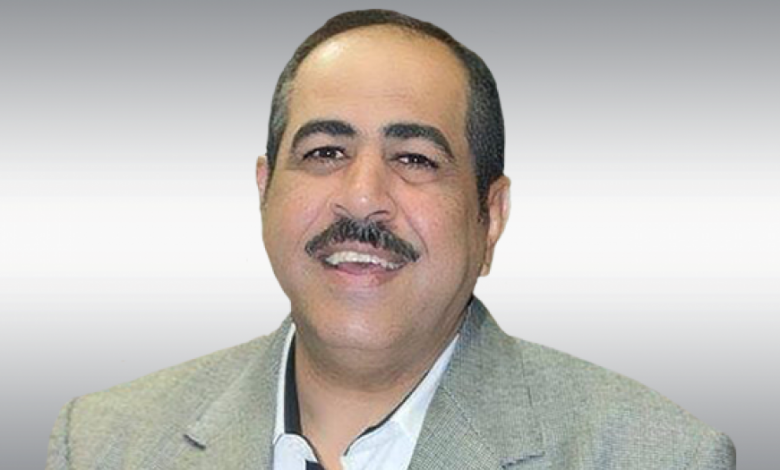Public international law and dynamics of diplomacy in international organizations

By : Dr. Hazem Qashou
Jordan Daily – Diplomacy, in all its forms—whether through formal channels, parliamentary contexts, or even public pathways—falls within the broader framework of international law, which acts as a regulatory tool for the operations of international organizations in conjunction with local entities.
This, in turn, allows these organizations to exchange perspectives within a peaceful context aimed at achieving the desired outcomes, particularly in maintaining international security and stability. It also fulfills the organizations’ foundational goals through principles that are rooted in accountability and responsibility under the law.
Additionally, it provides protection and support for these organizations, enabling them to evolve and innovate in order to enhance their ability to respond swiftly to broader circumstances, whether these are security-related or reflect the need to address emerging humanitarian values. This typically happens within a framework that balances the nature of the relationship between international organizations, their regulatory frameworks, methods of achieving their goals, and the mechanisms for implementing their actions.
In light of the evolving nature of knowledge brought about by global communication networks and artificial intelligence in shaping humanity’s cultural content and the humanities, the sought-after security for human safety, as well as regional and international peace, has come to balance the concept of security through legal regulation with value-based references.
These references underpin the climate of freedom and its regulations within the framework of international humanitarian law. However, the unclear relationship between a state’s right to self-defense through the use of force, without reference to international legitimacy or legal frameworks, has blurred the lines. This has led to policies that stray from legal texts and established rules, instead resembling the law of the jungle, which neither relies on peaceful references nor adheres to legal frameworks. Rather, it permits the use of the law of force, instead of relying on the force of law.
The law was supposed to serve as the legal reference for all, to clarify rights, ensure justice for the oppressed, and impose punishment on the aggressor. It was intended to be the sole means of resolving disputes, which the global structure and international organizations should depend on under public international law and within the realm of diplomatic relations among international organizations.
This has rendered international organizations seemingly incapable of enforcing the power and sovereignty of the law, especially under the exceptional circumstances of the current political climate, which is shaped by prevailing global geopolitical fluctuations. However, this reality should compel all parties to recognize the need to support international institutions and their legitimacy, as well as to respect international law and its judicial and legislative foundations.
This requires a collective stand of solidarity with international law, reinforcing its sovereignty without political manipulation that weakens it or discrimination that distorts its essence. Moreover, there should be no motives based on weak justifications that attempt to place themselves above the law and its frameworks, regardless of the guise they take or the arguments their leaders use to justify such violations and commit these brutal crimes against humanity.
So that the approach to action does not remain built on a double standard, with one side standing for justice and the enforcement of the law, while the other side uses political influence and is protected by the power of the veto. This veto, which was meant to be restricted, should not be used against humanitarian issues or rulings of international courts, as such rulings represent the authority and dignity of the international system.
These courts are supposed to be legally binding tools, carrying a declarative nature rather than a mere advisory one within the operations of international institutions, making the Security Council a tool for enforcement, not a political evaluator of the decisions of these courts, which stem from the UN’s regulatory framework.
This contrast has become glaringly evident in the events we are witnessing in Ukraine and Palestine. While international and humanitarian law is being enforced in Ukraine in response to Russian aggression against its territorial borders, the law stands powerless in the face of the occupying state, which continues to commit crimes against humanity against a people who seek to live and are working within the framework of international and humanitarian law to assert their right to self-determination and end the occupation. Despite the legal rights affirmed by international law and the humanitarian definitions granted by international legitimacy and UN charters, the Israeli occupier continues to destroy, kill, displace, and expel, without regard for international law or its authority.
Crimes committed against the Palestinian people, as they witness, firsthand, the state terrorism practiced by Israel against the defenseless Palestinian populace. The Tel Aviv government employs policies of intimidation and starvation aimed at displacement and expulsion, provoking humanitarian outrage. Yet, the international system has failed to even facilitate the delivery of humanitarian aid, including the restoration of water and electricity after over a year of disruption, despite numerous appeals from humanitarian, health, epidemiological, and human rights organizations.
All these calls have not compelled the occupier to ease the delivery of aid to those in need. Meanwhile, Jordan has attempted to deliver aid via air relief, which is the only option available, despite the dire living conditions faced by women and children without shelter, medicine, or food. This situation renders Gaza the only prison in the world where inmates lack food, water, and a safe space.
This illustrates that the whip of power is stronger than the voice of justice, which is supposed to represent the law and its sovereignty. Additionally, international courts have shown their inability to bridge the gap between what international law aims to express regarding accountability and responsibility for actions and the operational methods of international organizations in addressing events and managing crises amid the weakness and vulnerability that international organizations are experiencing.
The prevailing reliance on the law of power and the atmosphere of impunity over the law and its legitimacy makes countering this situation an urgent necessity to protect legal references and international organizations, as well as the regional bodies at work. This is essential to confront the influence of power and the law of force, which are beginning to prevail over the force of law and negatively impact the overall international operational system, including its diplomatic efforts. This issue has become a significant matter in international law, which is seen as a regulatory reference and the framework for international diplomatic work that should maintain order and clarify the nature of events.
International organizations, when established, rely on governmental legitimacy or arise from regional and international agreements as recognized by international bodies. This has been affirmed by the Economic and Social Council of the United Nations, which recognizes the principles derived from these organizations.
The second element that complements their foundation requires a content of distinction to maintain the continuity of the international community and its entities, as outlined in operational requirements that necessitate their enjoyment of self-autonomy, considering them as legal entities with an independent perspective on the jurisdictions and mandates of international organizations. These organizations form a voluntary association of states aimed at achieving specific objectives, with functions defined by an administrative structure based on a legislative framework in their charters.
Additionally, there are executive elements that implement policies and represent the organizations according to the specialized attributes of these institutions, whether they are regional, international, or based on a collective operational platform. Regional organizations carry with them a legacy of humanitarian concerns, such as the Arab League, Francophonie, or professional scientific entities, as well as technological or even military alliances like NATO. Yet, all operate within specialties that define their nature within the framework of law and its sovereignty, which serves as the regulatory reference for managing their operations.
The foundation for establishing international organizations fundamentally relies on treaties of international law and their conventions, making them subject to the conditions set by the treaties that create these organizations according to their legal definitions, such as “charter,” “constitution,” “covenant,” “statute,” or “agreement.” These organizations emerge from the regulatory framework governing the nature of the institutions from which they arise. This means that the governing framework forms a foundational reference for each organization based on the characteristics of the institution, the nature of its establishment, and the operational mechanisms derived from it.
Thus, the degree of distinction between these international organizations lies in their pursuit of upholding humanitarian values and preserving their operational models, in contrast to their aspirations. This also includes illustrating the degree of administrative differentiation and quality factors that set them apart, as well as the means of communication and connection among them and their environments, which should ideally enhance their legitimacy by ensuring acceptance of their decisions.
This ensures that they all focus on elevating the rule of law and their formal operations within international references. This dynamic encourages states and societies to support international legitimacy in order to maintain security and public peace, as it serves as the regulatory reference for the work of member states. Moreover, it enables communities to enrich the pool of knowledge through their diverse cultural heritage, alongside cognitive sciences, contributing innovations and inventions that societies may achieve to add to the tributaries of their knowledge rivers, thereby fostering a mosaic of human coexistence in the vast sea of humanity as a whole.
Employees of international organizations who operate under decisions issued by these organizations, according to their administrative structures, have their protection guaranteed by the international organization, which is itself protected by the United Nations according to rulings from the International Court of Justice.
Representatives of these organizations are also under the protection of international law and enjoy diplomatic immunity, shielding them from both subjective and objective pressures that might hinder their humanitarian roles or compel them to act under personal or political pressure when reporting situations or taking firm stances necessitated by the organization’s operations.
This duality is a challenge for many international institutions when implementing models of good governance, particularly concerning freedoms, democracy, or entering conflict zones to deliver humanitarian or health supplies or to inspect biological and strategic weapons. All of these situations call for immunity, as well as the enforcement of the rule of law, while rejecting the use of force and holding accountable those who employ it, considering it a regressive and inhumane model.
No state should use force under international sovereignty and legitimate UN channels, nor should it remain an active member of the international system established by law to curb the misuse of force and prevent violations of legal principles.
While it is true that international organizations are voluntary in their establishment and composition, they are also active entities that operate within an international framework rather than merely a national one. This can lead to a fluctuating relationship between international organizations and national agendas, with the balance of this relationship being dynamic between the national aspirations from which these organizations arose and the international requirements they adhere to.
Not everything agreed upon in the international arena will necessarily be welcomed by local communities, which exposes these international organizations to skepticism and accusations from many due to cultural, industrial, scientific, or intellectual disparities between societies.
This gap necessitates a reformative and corrective action plan aimed at addressing underlying issues, ensuring that these international organizations operate smoothly and effectively. There is a need to provide evidence to implement deterrent measures against anyone who opposes or obstructs the work of these organizations, particularly in humanitarian and relief issues, to ensure their effectiveness.
Dr. Hazem Qashou is a lecturer at the International Union of Universities & American International Education Federation, specializing in International Law and the Diplomacy of International Organizations.
The opinions expressed in this article are those of the writer and do not necessarily reflect the views or positions of the Jordan Daily.

